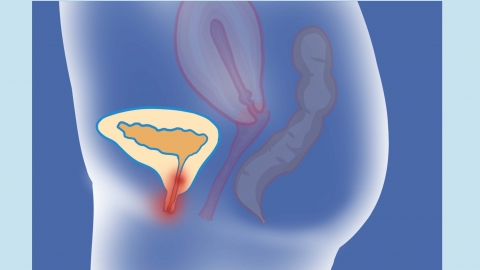What causes women to experience sudden urgency to urinate and be unable to hold it?
Generally, women experiencing sudden urgency and being unable to hold urine may be caused by excessive water intake, emotional stress, cystitis, urethritis, overactive bladder syndrome, and other related conditions. It is recommended to seek timely medical consultation and follow professional guidance for treatment. Detailed explanations are as follows:

1. Excessive Water Intake
Consuming a large amount of water in a short period increases urine production by the kidneys, leading to rapid bladder filling. The detrusor muscle of the bladder becomes stimulated and contracts, causing urgency. If unable to reach the toilet in time, involuntary urination may occur. It is recommended to manage water intake appropriately, avoid excessive water consumption within a short time, and reduce intake of diuretic beverages such as coffee and tea.
2. Emotional Stress
When experiencing emotions such as tension or anxiety, the nervous system may become affected, causing abnormal excitement of the bladder detrusor muscle, which leads to urgency. In daily life, it is important to learn self-regulation techniques, such as deep breathing, meditation, and physical exercise, to relax and maintain a positive mindset, avoiding excessive emotional stress.
3. Cystitis
Cystitis is often caused by bacterial infection, such as Escherichia coli. Bacteria multiply in the bladder, irritating the bladder mucosa, causing congestion, edema, and increased sensitivity. Even slight bladder filling can trigger a strong urge to urinate, resulting in urgency. Symptoms may include dysuria (painful urination) and lower abdominal pain. Treatment may involve medications such as nitrofurantoin enteric-coated tablets, levofloxacin tablets, and cefixime capsules, as directed by a physician.
4. Urethritis
Urethritis typically results from infection of the urethra by pathogens such as Chlamydia trachomatis or Neisseria gonorrhoeae. Inflammation irritates the urethral mucosa, causing mucosal damage and abnormal nerve conduction, leading to frequent urges to urinate. Symptoms may also include urethral itching and redness or swelling at the urethral opening. Treatment may involve medications such as azithromycin tablets, roxithromycin capsules, and doxycycline tablets, as advised by a doctor.
5. Overactive Bladder Syndrome
Overactive bladder syndrome may be associated with detrusor muscle instability or hypersensitivity of the bladder. Abnormal contractions of the bladder detrusor muscle reduce bladder capacity, frequently causing strong urges to urinate, making it difficult to control urination. Additional symptoms may include urinary frequency and increased nocturia (nighttime urination). Treatment should follow medical advice and may involve medications such as tolterodine tartrate tablets, solifenacin succinate tablets, and mirabegron extended-release tablets.
In daily life, it is important to maintain perineal hygiene, avoid prolonged sitting, and perform moderate pelvic floor muscle exercises to help prevent such conditions.








